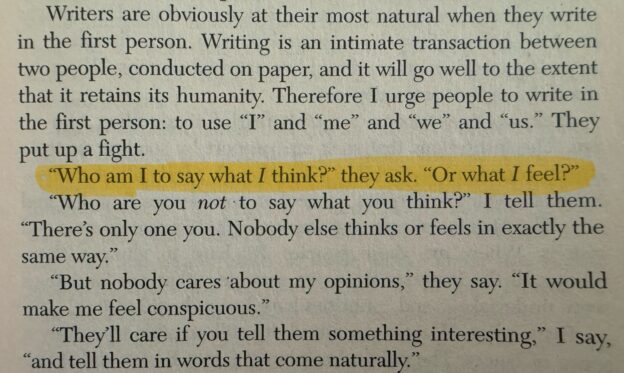Last April, I was invited to submit a proposal to write an article for Gergely Orosz’s The Pragmatic Engineer. He directed me to write for the newsletter’s audience of software engineering managers and senior engineers at larger companies and to write from my personal experiences. I wrote a proposal and outline, which he accepted, and went on to write a first draft.
I felt very confident that I understood what Gergely wanted and then proceeded to write 7,000 words that he hated. That sounds strong, but he read a few paragraphs and got so frustrated that he stopped and asked me to start over (or give up—but, in a nice way). It took me months to figure out that even though I was writing for myself, I wasn’t writing as myself.
Right after the rejection, I talked to a friend and told her what happened. I told her that that I was anxious about writing in a personal style so publicly—that I would embarrass myself. First, she reminded me that I often try to get points across with stories from my career, and that this was just like that. Then she said: “If you don’t write the book that only you can write, then why do it at all?”
Soon after, I reread “On Writing Well” by William Zinsser. This excerpt cemented what she was telling me (emphasis mine).
Writers are obviously at their most natural when they write in the first person. Writing is an intimate transaction between two people, conducted on paper, and it will go well to the extent that it retains its humanity. Therefore I urge people to write in the first person: to use “I” and “me” and “we” and “us.” They put up a fight.
“Who am I to say what I think?” they ask. “Or what I feel?”
“Who are you not to say what you think?” I tell them. “There’s only one you. Nobody else thinks or feels in exactly the same way.”
“But nobody cares about my opinions,” they say. “It would make me feel conspicuous.”
“They’ll care if you tell them something interesting,” I say, “and tell them in words that come naturally.”
It’s weird, because on this blog, I do write as myself (and my podcast is also my point-of-view on what I am learning about writing). But this blog and my podcast are mostly for self-development. I am trying to transform myself into someone that writes. I hope that my readers learn something, but mostly, this is practice for bigger things.
But, in my article first draft (and in early drafts of my book) I stopped writing as myself. It made it harder to write, and (based on feedback) harder to read. The irony is that I used this blog to practice writing, and almost all of that practice was writing in first-person with my point of view, and then as soon as I tried to write something longer, I abandoned it.
So, I gave in, and it’s gone a lot better. I can still say what I want to say (the tips and practices I think will help people), but wrapping them in stories makes the book easier to understand. Even now, as I am finishing up the book, I can see that my final section isn’t me, and so, I need to rewrite it.
